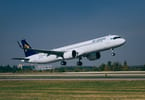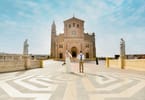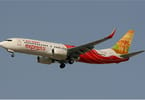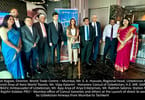Mauritius has built up a solid reputation as an investment hub, reliable and safe in terms of good governance as well as ethical, economic and political transparency. This little country, which combines a lively feeling for business with an attractive lifestyle, has achieved one of the fastest growth rates in sub-Saharan Africa.
In the latest issue of Luxury Mauritius Magazine, http://www.luxurymauritiusmagazine.com/en/ you will find testimonies, interviews of expatriates and investors who are living the “Mauritian Dream.”
There are so many good reasons to invest there. Below are seven of them, summing up the powerful attraction of the Switzerland of the Indian Ocean.
1. A very favorable taxation system:
Mauritius has adopted a low rate of taxation to encourage the setting up of local and foreign companies:
• No inheritance tax
• Tax credits of 80% for offshore companies
• 15% tax on company profits and personal income
• Value-Added Tax at 15% (refundable)
• No tax on dividend
• No customs duties or VAT on equipment
2. Durable Political and Social stability:
Since its independence in 1968, Mauritius has enjoyed real political stability. Its government is democratically elected every five years. The political structure is based on the British parliamentary model, following the principle of the separation of powers, legislature, executive and judiciary, under the vigilant eye of the “fourth power”, a free press.
3. An Economy based on free trade: The dynamism which has put Mauritius into second place among middle-income African countries is the result of sustained and efficient economic management based on the principle of free trade which is embraced by the political class, the business community and the local population as a whole, for whom the protection of foreign investors has always been a priority. The Index of Economic Freedom, published annually by the Wall Street Journal and the Heritage Foundation puts Mauritius in 8th place in 2013 among countries where economic freedom prevails, ahead of the United States, Great Britain, Japan, Germany and France. The spearhead of these facilities, the Board of Investment, takes its advisory role very seriously, deals rapidly with dossiers and makes it possible for an economic activity to start in three days!
4. Protection of assets and Double Taxation treaties: The country has signed up to several multi-lateral treaties and conventions that guarantee the protection of investors. A member of COMESA (Common Market for Eastern and Southern Africa), SADC (Southern African Development Community) and the IOC (Indian Ocean Commission), Mauritius has also signed 37 double-taxation avoidance agreements, which facilitate movement of capital, transfers of assets, inheritances etc.
5. A qualified workforce:
The literacy rate in the country is over 80% and because of their history, Mauritians are bilingual in English and French. The population is composed of educated young people and qualified professionals, multi-skilled and always on the look-out for training possibilities. Many Mauritians go on after obtaining local qualifications from the University of Mauritius or the University of Technology to study at foreign universities.
6. A Strategic Geographical position:
Thanks to its position in the Indian Ocean, Mauritius is today a hub for commerce, investment and tourism, connecting Africa, India and Asia with the rest of the world. In a convenient time zone (GMT+4), the country is a commercial and financial center which is open for business before the markets in the Far East close and after those of the United States open.
7. Free zones / Free port:
Launched in 1992, the Mauritius Freeport is a free-trade hub for products destined to be re-exported. The government’s aim is to make the country into a logistical and regional zone for stockage, distribution and commerce, serving East Africa, South Africa and Indian Ocean countries. Those operating in the Mauritius Freeport are exempted from tax on company profits. At the end of 2012, 254 companies were active in sectors such as re-export, transshipment of containers and assembling goods. The government acts as a business facilitator in most sectors and as a regulator for a small number of specific activities. In the port area, a special counter has been opened, in order to speed up the delivery of the required permits.
WHAT TO TAKE AWAY FROM THIS ARTICLE:
- The dynamism which has put Mauritius into second place among middle-income African countries is the result of sustained and efficient economic management based on the principle of free trade which is embraced by the political class, the business community and the local population as a whole, for whom the protection of foreign investors has always been a priority.
- In a convenient time zone (GMT+4), the country is a commercial and financial center which is open for business before the markets in the Far East close and after those of the United States open.
- The political structure is based on the British parliamentary model, following the principle of the separation of powers, legislature, executive and judiciary, under the vigilant eye of the “fourth power”, a free press.






















